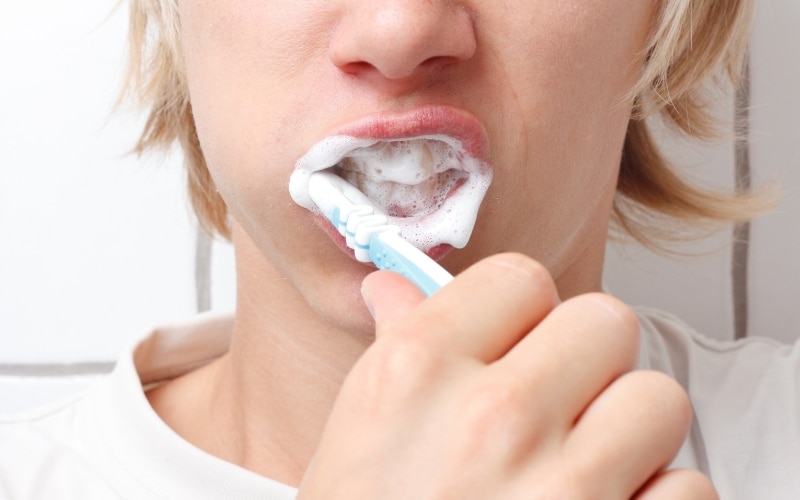
Can Hard Brushing Cause Gum Disease?
Many people unknowingly make the small mistake of brushing too hard, assuming it leads to better oral hygiene. On the other hand, brushing too hard can cause Gum Disease, which many of us are unaware of. Research suggests that the forceful action of hard brushing leads to gum disease a precursor to gum disease. Aggressive brushing can also wear down tooth enamel, making teeth more susceptible to decay and sensitivity. This article will explore the relationship between hard brushing and gum health in detail.
How Hard Brushing Can Cause Gum Disease?
Hard brushing can cause gum disease by causing trauma to the delicate gum tissue. Excessive force can lead to gum recession, where the gums pull away from the teeth, creating pockets that trap bacteria and debris and fostering gum disease. Additionally, abrasive brushing wears down enamel, exposing the sensitive dentin underneath and increasing susceptibility to decay and gum inflammation. Furthermore, repeated irritation from hard brushing can lead to chronic inflammation, exacerbating gum disease. Ultimately, gentle brushing is essential to prevent gum recession, maintain enamel integrity, and reduce the risk of developing gum disease.
Signs You Might Be Brushing Too Hard
1. Receding Gums: If your gums pull away from your teeth, exposing more of the tooth’s surface could indicate excessive pressure during brushing.
2. Tooth Sensitivity: Increased sensitivity to hot, cold, or sweet foods and drinks might indicate enamel erosion due to aggressive brushing.
3. Bleeding Gums: Bleeding gums can indicate gum tissue damage from excessive force, especially during or after brushing.
4. Worn Toothbrush Bristles: If you notice that your toothbrush’s bristles are frayed or flattened within a few weeks, it could indicate that you’re brushing too hard.
5. Mouth Pain or Discomfort: Persistent discomfort in your mouth, including soreness or pain in the gums, teeth, or jaw, might result from brushing too much force.
Tips for Gentle Brushing
1. Use a Soft-Bristled Toothbrush: Opt for a toothbrush with soft bristles to minimize abrasion on your teeth and gums while effectively removing plaque.
2. Gentle Pressure: Apply gentle pressure when brushing rather than vigorously scrubbing. Let the bristles do the work.
3. Proper Technique: Use small, circular motions to gently clean each tooth and massage the gums. Avoid using a back-and-forth sawing motion, which can be harsh on the gums.
4. Time It Right: Brush for two full minutes, but don’t rush. Take your time to ensure thorough cleaning without applying excessive force.
5. Regular Check-ups: Schedule regular dental check-ups to monitor your oral health and receive guidance on proper brushing techniques tailored to your needs.
Wrap Up!
In conclusion, gentle brushing is paramount for maintaining optimal oral hygiene and preventing gum disease. Remember, the health of your gums is directly impacted by how you brush. You can safeguard your gums and teeth by using soft-bristled toothbrushes, applying gentle pressure, and employing proper brushing techniques, such as circular motions. Feel free to consult a dentist if you need clarification about your brushing habits or notice any signs of gum damage. At Singh Smile Care, we support your dental health journey. Schedule your appointment today, and let’s keep your smile healthy and vibrant!



